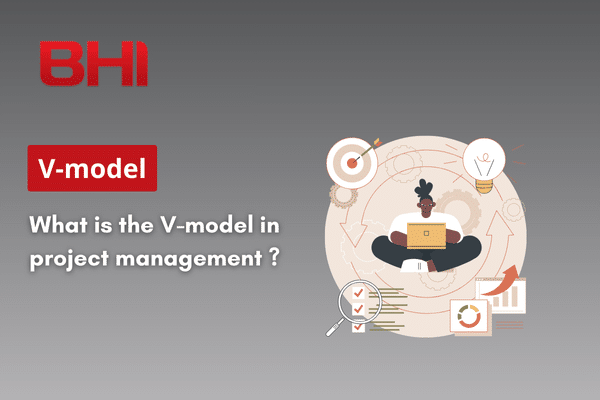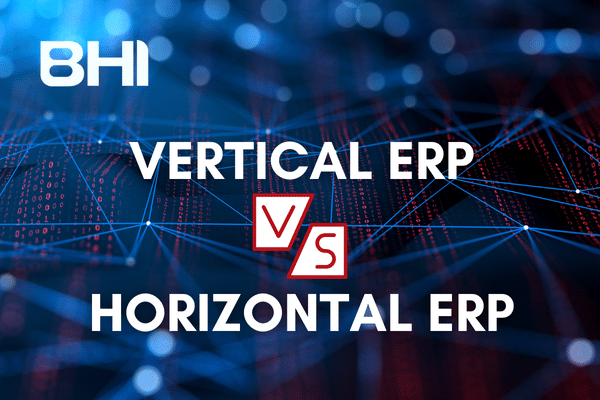Implementing an ERP is a long-term project that requires support and advice throughout the solution’s lifecycle. Contrary to popular belief, the choice of service provider is just as important as the choice of solution itself. Indeed, the integration and proper use of ERP software depend to a large extent on the partner and their expertise. So this choice should not be left to chance.
Why ERP implementation is crucial
To successfully manage an ERP project, it is essential to work with a partner capable of providing consultancy, integration, support, training and maintenance.
To be well supported, SMIs can choose to work with a publisher specialising in ERP development or an integrator with excellent skills in ERP integration methods. Entrusting the deployment of an ERP project to a partner requires careful thought. Publisher or integrator: what criteria should you take into account when choosing ?
How do you work with a service provider ?
Before calling on potential service providers, the company draws up a set of specifications in order to structure the project properly. This enables the processes, needs and challenges that the ERP will have to address to be identified at an early stage. Getting the specifications right is a necessary step in guiding your choice of ERP solution and ensuring effective communication with the service provider.
To judge the quality of a partner, whether it’s a software publisher or an integrator, the demonstration phases enable you to check the quality of service offered. The service provider will support you during the deployment, configuration and familiarisation phases of the software. Whatever the company’s practices, this specialist is committed to mastering the integration of the ERP, to helping it evolve, and to providing advice at every stage of the project.
The phases of ERP implementation
Once the choice of ERP system has been made, the service provider will support you during the integration phase. This deployment can be carried out in phases or all at once. Before going live, you need to carry out configuration and testing to adapt the solution to your specific business requirements. Deploying an ERP solution is a long-term project that can prove complex, which is why it’s so important to have the support of a partner in an advisory role.
Entrusting ERP deployment to an integrator
An integrator plays a crucial role as a service provider in the implementation and integration of an ERP solution. Their role includes advising you on the choice of configuration, development and optimisation of the software to meet your current and future needs.
Acting as the main contact for the project, the integrator is present during and after the deployment of the ERP. Based on the defined specifications, this specialist guides you through the integration so that the ERP meets your company’s needs. For the project to be as successful as possible, it is essential that the integrator fully understands your business, how you operate and your constraints.
After deployment, the integrator trains all your staff in the new solution. They also monitor the project, taking into account user requests, expectations and use cases.
In an ERP project, the integrator acts as the link between the customer and the publisher. It is therefore crucial to define the integrator’s scope of involvement precisely from the outset, to avoid any delays in the turnaround times.
ERP project management by an editor
The publisher is the designer of the ERP solution, which gives it in-depth knowledge of the software to be integrated into a company. Thanks to their mastery of the project lifecycle, publishers are able to support companies as they use their ERP solution, responding rapidly to specific needs and developments.
By opting for a software vendor integrator (some service providers combine these two roles), companies benefit from a single point of contact with all the necessary skills: sales, consulting, support, maintenance, R&D. The publisher/integrator has a thorough understanding of its customers’ business and the challenges they face, enabling it to develop an ERP solution specific to their business. This is an advantage for SMEs and SMIs with specific business processes and constraints, enabling the solution to be upgraded rapidly.
As a specialist in ERP development, the publisher brings technical and functional skills to the solution, but is not always in a position to manage deployment on the customer’s site, unlike an integrator.
ERP Integrator : Advantages and Disadvantages
Advantages of an ERP integrator
-
Technical expertise
ERP integrators have in-depth technical expertise and are able to customise ERP to meet specific business needs.
-
Ongoing support
They offer ongoing support during and after implementation, ensuring a smooth transition.
-
Geographical proximity
Local integrators can offer rapid assistance and reduce travel costs.
Disadvantages of ERP integrators
-
High costs
The services of an ERP integrator can be expensive, particularly for small businesses.
-
Dependency
The company may become dependent on the integrator for updates and maintenance.
ERP Editor : Advantages and Disadvantages
Advantages of ERP Editor
-
In-depth knowledge of the software
ERP publishers know their software inside out and can offer solutions tailored specifically to your business needs
-
Regular updates
Publishers provide regular updates to improve ERP functionality and security.
-
Direct support
Support is often faster and more effective, as it is provided directly by the team that developed the software.
Disadvantages of the ERP Editor
-
Less customisation
Publishers can offer less customisation than integrators.
-
Maintenance costs
Maintenance costs can be high, especially if the publisher charges extra for updates and support.
How to choose between an ERP Integrator and an ERP Editor ?
Criteria to consider
-
Business references
Check the service provider’s references and specialisations to make sure they understand your business sector.
-
Quality of support
Assess the quality of support offered by the service provider, including responsiveness and technical expertise.
-
Maintenance costs
Compare maintenance costs and make sure they are transparent and reasonable.
-
Geographical availability
Choose a local service provider to benefit from rapid assistance and reduce travel costs.
Demonstration phases
The demonstration phases are crucial for assessing the quality of service offered by the service provider. They enable us to check whether the ERP system meets the company’s needs and whether the service provider is capable of providing adequate support.
Conclusion
The choice between an ERP integrator and an ERP publisher depends on your company’s specific needs, your budget and your expectations in terms of support and customisation. Take the time to evaluate each option and consult references before making a decision.
At BHI Consulting, we understand how critical the choice between an ERP integrator and an ERP vendor is to the success of your digital transformation project. As a strategic partner specialising in the integration of ERP solutions, our in-depth expertise enables us to support your company at every stage of its technological evolution, from the initial selection to the ongoing optimisation of your system.

















